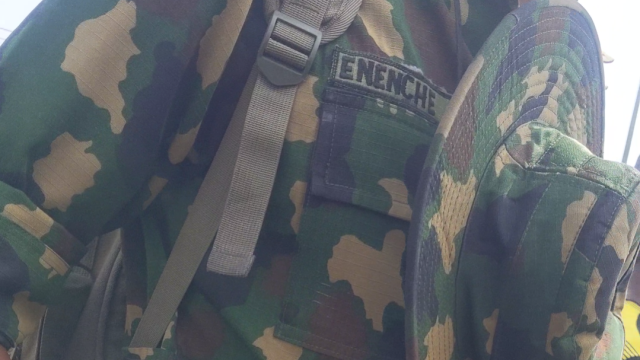Passengers and residents of Ilasamanja, Lagos, on Monday condemned a Nigerian soldier who allegedly assaulted a tricycle driver over traffic obstruction and failure to use his indicators, sparking a 30-minute gridlock in the area.
The altercation occurred around 2:43 p.m., drawing the attention of motorists and commuters. Witnesses said the soldier, identified as Enenche K., slapped the tricycle operator after his motorcycle collided with the tricycle. The soldier claimed the driver had failed to signal properly and nearly caused an accident.
An elderly passenger inside the tricycle intervened, confronting the soldier and accusing him of abusing his uniform.
“You lack the authority to punish any road offender. You can’t just bully civilians because you wear a uniform,” the man reportedly said, cautioning residents who attempted to pacify the soldier by apologising on the driver’s behalf.
The passenger described the soldier’s action as “maltreatment of Nigerians” and vowed to report the incident to relevant authorities.
Witnesses said the soldier, who claimed to be a chartered accountant, retorted that the elderly man was “lucky to be old,” otherwise he would have “felt his wrath.” He also threatened to impound the tricycle, insisting it would not move.
The confrontation caused tension in the area as other road users gathered to record and mediate the situation. Eventually, residents intervened, urging both parties to calm down, leading to the eventual resolution of the standoff.
Road safety experts have linked many such altercations to poor driving practices and inadequate traffic education among commercial drivers.
According to the Federal Road Safety Corps (FRSC), about 12 per cent of road accidents in Nigeria in 2024 were linked to brake failure or abrupt braking, often resulting in avoidable collisions and confrontations between motorists.
The FRSC has repeatedly warned against self-help and the use of force by military or law enforcement personnel during traffic disputes, urging that all complaints be channelled through appropriate agencies.
The incident in Ilasamanja adds to growing concerns over the conduct of uniformed personnel on Nigerian roads, with citizens calling for better civil-military relations and stricter sanctions against errant officers.


